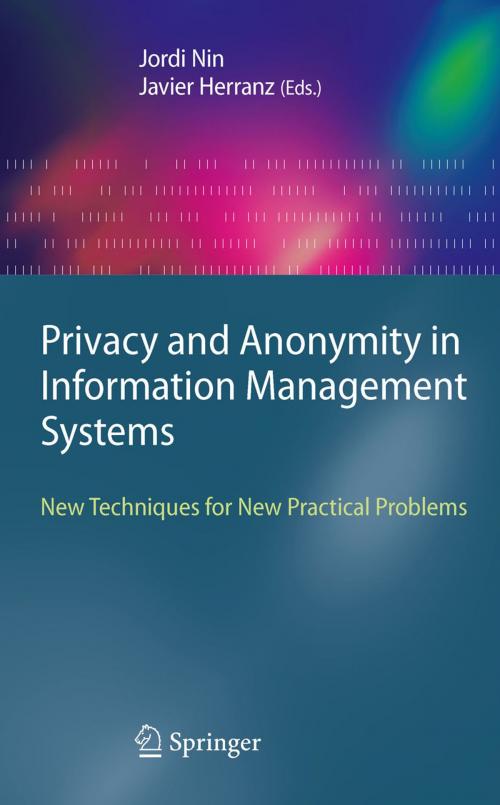Privacy and Anonymity in Information Management Systems
New Techniques for New Practical Problems
Nonfiction, Computers, Networking & Communications, Computer Security, Operating Systems, Application Software| Author: | ISBN: | 9781849962384 | |
| Publisher: | Springer London | Publication: | July 16, 2010 |
| Imprint: | Springer | Language: | English |
| Author: | |
| ISBN: | 9781849962384 |
| Publisher: | Springer London |
| Publication: | July 16, 2010 |
| Imprint: | Springer |
| Language: | English |
As depicted in David Lodge’s celebrated novel Small World, the perceived size of our world experienced a progressive decrease as jet airplanes became affordable to ever greater shares of the earth’s population. Yet, the really dramatic shrinking had to wait until the mid-1990s, when Internet became widespread and the information age stopped being an empty buzzword. But small is not necessarily beautiful. We now live in a global village and, alas, some (often very powerful) voices state that we ought not expect any more privacy in it. Should this be true, we would have created our own nightmare: a global village combining the worst of conventional villages, where a lot of information on an individual is known by the other villagers, and conventional big cities, where the invidual feels lost in a grim and potentially dangerous place. Whereas security is essential for organizations to survive, individuals and so- times even companies also need some privacy to develop comfortably and lead a free life. This is the reason why individual privacy is mentioned in the Univ- sal Declaration of Human Rights (1948) and data privacy is protected by law in most Western countries. Indeed, without privacy, the rest of fundamental rights, like freedom of speech and democracy, are impaired. The outstanding challenge is to create technology that implements those legal guarantees in a way compatible with functionality and security. This book edited by Dr. Javier Herranz and Dr.
As depicted in David Lodge’s celebrated novel Small World, the perceived size of our world experienced a progressive decrease as jet airplanes became affordable to ever greater shares of the earth’s population. Yet, the really dramatic shrinking had to wait until the mid-1990s, when Internet became widespread and the information age stopped being an empty buzzword. But small is not necessarily beautiful. We now live in a global village and, alas, some (often very powerful) voices state that we ought not expect any more privacy in it. Should this be true, we would have created our own nightmare: a global village combining the worst of conventional villages, where a lot of information on an individual is known by the other villagers, and conventional big cities, where the invidual feels lost in a grim and potentially dangerous place. Whereas security is essential for organizations to survive, individuals and so- times even companies also need some privacy to develop comfortably and lead a free life. This is the reason why individual privacy is mentioned in the Univ- sal Declaration of Human Rights (1948) and data privacy is protected by law in most Western countries. Indeed, without privacy, the rest of fundamental rights, like freedom of speech and democracy, are impaired. The outstanding challenge is to create technology that implements those legal guarantees in a way compatible with functionality and security. This book edited by Dr. Javier Herranz and Dr.















